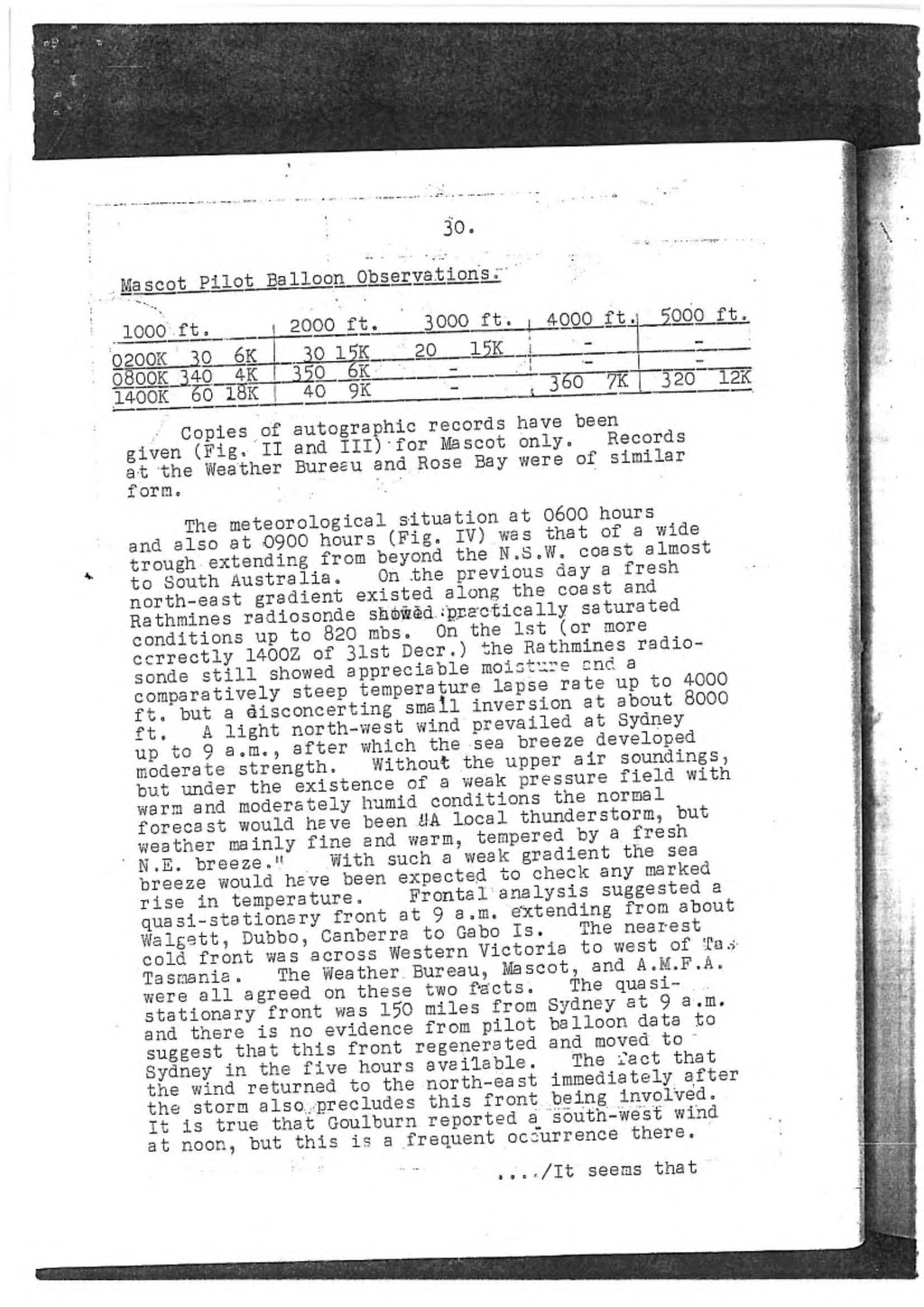30.
Mascot Pilot Balloon Observations.
| 1000 ft | 2000 ft | 3000ft | 4000ft | 5000ft | ||||||
| 0200K | 30 | 6K | 30 | 15K | 20 | 15K | - | - | ||
| 0800K | 350 | 4K | 350 | 6K | - | - | - | |||
| 1400K | 60 | 180K | 40 | 9K | - | 360 | 7K | 320 | 12K | |
Copies of autographic records have been given (Fig. II and III) for Mascot only. Records at the Weather Bureau and Rose Bay were of similar form.
The meteorological situation at 0600 hours and also at 0900 hours (Fig. IV) was that of a wide trough extending from beyond the N.S.W. coast almost to South Australia. On the previous day a fresh north-east gradient existed along the coast and Rathmines radiosonde showed practically saturated conditions up to 820 mbs. On the 1st (or more correctly 1400Z of 31st Decr.) the Rathmines radiosonde still showed appreciable moisture and a comparatively steep temperature lapse rate up to 4000 ft. but a disconcerting small inversion at about 8000 ft. A light north-west wind prevailed at Sydney up to 9.a.m., after which the sea breeze developed moderate strength. Without the upper air soundings, but under the existence of a weak pressure field with warm and moderately humid conditions the normal forecast would have been "A local thunderstorm, but weather mainly fine and warm, tempered by a fresh N.E. breeze." With such a weak gradient the sea breeze would have been expected to check any marked rise in temperature. Frontal analysis suggested a quasi stationary front at 9 a.m. extending from about Walgett, Dubbo, Canberra to Gabo Is. The nearest cold front was across Western Victoria to the west of Tasmania. The Weather Bureau, Mascot, and A.M.F.A. were all agreed on these two facts. The quasi-stationary front was 150 miles from Sydney at 9 a.m. and there is no evidence from pilot balloon data to suggest that this front regenerated and moved to Sydney in the five hours available. The fact that the wind returned to the north-east immediately after the storm also precludes this front being involved. It is true that Goulburn reported a south-west wind at noon, but this is a frequent occurrence there.
...../It seems that
